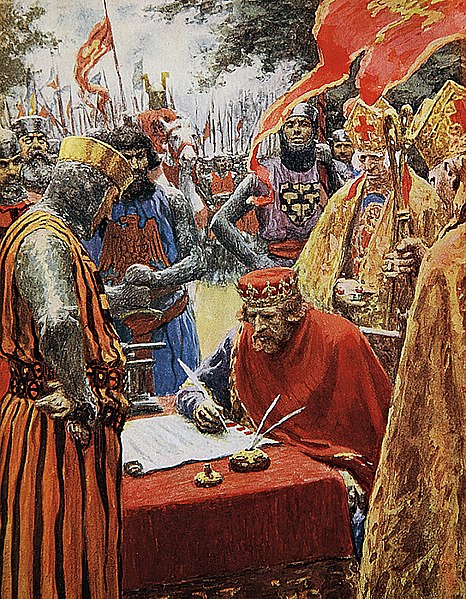
The Signing Of The Magna Carta
In 1215, the signing of the Magna Carta – Latin for “Great Charter” – marked one of the most significant events in the history of England. Though its immediate impact was short-lived, it paved the way for future diplomatic developments and modern law. Despite its symbol of liberty and justice, the Magna Carta was first introduced to protect the privileges and rights of the noble classes, rather than those of the ordinary people. Today, four copies of the original document still exist, in the British Library, Salisbury cathedral and Lincoln Cathedral.
History Of The Magna Carta
The latter years of King John’s reign were marked with political turmoil, costly military failures and church disputes. The tax increases and land seizures that he implemented to compensate for his military failures increased the level of discontent within his nobility. His perceived abuse of power and heavy-handed rule eventually led to a rebellion by a group of barons and powerful nobles, who forced King John into negotiations on a formal agreement that would limit the king’s authority. Often hailed as a corner stone of freedom, the Magna Carta was written out to protect the justice and rights of the people.
Magna Carta Clauses
King John was urged to sign 63 clauses in total, which sought to address the most pressing issues and concerns. The charter restricted the King’s autonomy, insisting that he collaborate with his barons on new decisions and the passing of law while removing his influence over the running of the Church. This meant new taxation increases would have to be approved by the barons before being implemented. The Magna Carta also enforced the ideals of justice, stating that everyone was entitled to a fair trial and therefore couldn’t be unlawfully imprisoned or stripped of their land or property.
Impact And Legacy
King John reluctantly agreed to the terms but soon sought to have them annulled with the support of the Pope, leading to a period of civil war known as the First Barons’ War. Upon his death, King John’s son, Henry III, was forced to reissue the Magna Carta and the document soon became entrenched in the English legal and political system. As well as setting the foundation for modern law and the constitutional monarchy, the Magna Carta influenced many democratic movements and the expansion of civil rights, such as the US Constitution and the Bill of Rights. The Magna Carta symbolises the ongoing balance between the freedoms of the people and the regulation of power by a country’s ruler.
If you would like to study History, Oxford Open Learning offer the chance to do so at IGCSE and A level, linked below. You can also Contact Us.